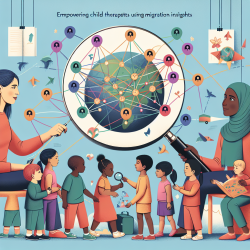In the realm of immigrant health, a new concept is emerging that challenges traditional views on acculturation. The study titled "Pre-acculturation as a Risk Factor for Obesity: Findings from the Health of Philippine Emigrants Study (HoPES)" sheds light on how exposure to Western ideas and behaviors before migration—termed pre-acculturation—can influence obesity risk among immigrants. This insight is crucial for practitioners working with immigrant populations.
Understanding Pre-Acculturation
Traditionally, acculturation has been viewed as a process that occurs after migration, where immigrants adopt the cultural norms of their new country. However, globalization has blurred these lines, allowing individuals to be exposed to Western lifestyles even before they migrate. This pre-acculturation can manifest through English proficiency, preparation for migration, and communication with friends or family in the U.S.
The Impact on Obesity
The HoPES study highlights that pre-acculturation is associated with increased obesity risk indicators such as body mass index (BMI), waist circumference (WC), and waist-to-height ratio (WHtR). For practitioners, this means that addressing obesity in immigrant populations may require considering factors that precede migration.
- Migrants with higher English proficiency and preparation levels showed greater BMI and WC.
- The interaction between migration status and preparation was significant in predicting obesity risk.
- Non-migrants who communicated with U.S.-based friends or family via text or phone had lower BMI and WC.
Implications for Practice
This research suggests that practitioners should consider pre-migration factors when developing interventions for immigrant health. Here are some strategies:
- Assess Pre-Migration Exposure: Evaluate patients' exposure to Western lifestyles before migration to better understand their health behaviors.
- Focus on Communication: Encourage healthy communication between immigrants and their overseas contacts to promote positive health behaviors.
- Cultural Sensitivity: Recognize the influence of globalization on traditional dietary habits and address these changes in dietary counseling.
Encouraging Further Research
The findings from the HoPES study open new avenues for research into how globalization affects immigrant health. Practitioners are encouraged to explore these dynamics further to develop more effective public health interventions.










